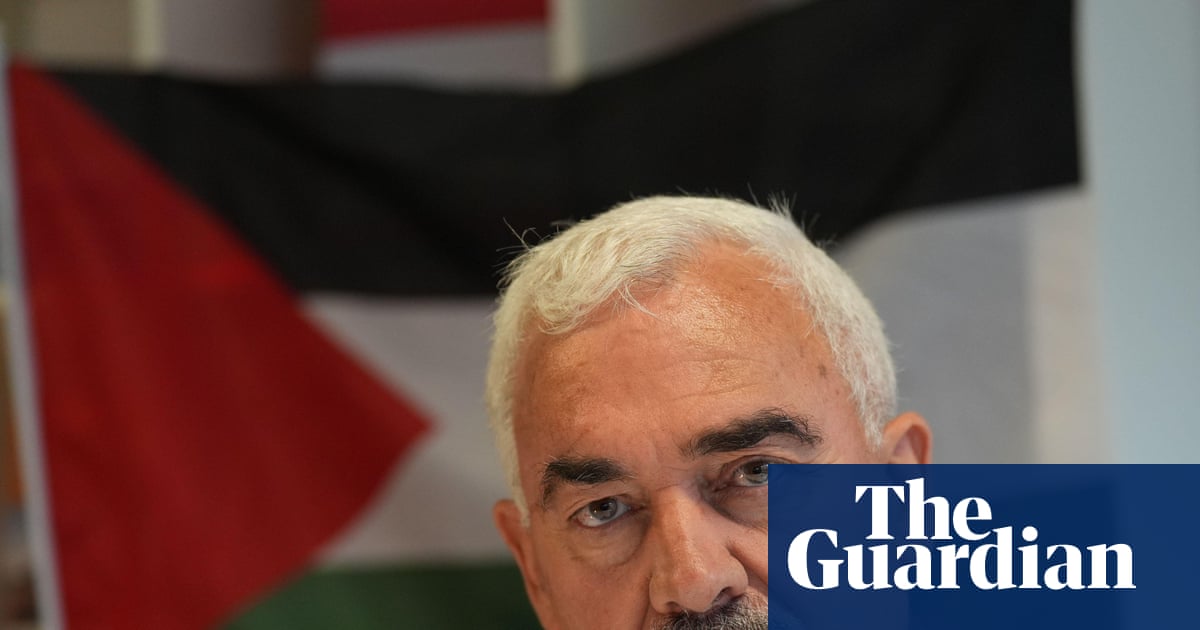Two advisers to U.S. Health and Human Services Secretary Robert F. Kennedy Jr. sat on a stage in California this spring, addressing an audience at a natural products industry trade show that drew tens of thousands of people from food brands, investment banks, supplement sellers and other companies.
Their message: The goals of the Make America Healthy Again movement will help your bottom lines.
“It blows my mind that I’m going to watch the Republicans carry the supplement industry and the holistic health industry and chiropractors and the acupuncturists into the promised land,” said Del Bigtree, according to video of the remarks obtained by The Associated Press. At the time, Bigtree was leading MAHA Action, one of the groups an AP investigation found pushing anti-science bills in states.
Powerful anti-vaccine advocates and people selling potentially harmful goods such as raw milk are profiting from the push to write anti-science policies into law across the U.S. They object to the term “anti-science” and portray the MAHA movement as grassroots. But it’s fueled by a web of well-funded national groups led by people who’ve profited – financially and otherwise – from sowing distrust of medicine and science.
Whether by advancing their careers or selling more products, these leaders are finding ways to benefit.
One way activists promote those ideas is through state legislation. Supporters argued that making money or increasing sales for businesses — such as dairy farmers — was a reason to pass some of the bills that would remove consumer protections, AP found. In at least one case, that reasoning was spelled out in the text of the bill.
Helping businesses through MAHA
A core criticism Kennedy and his allies repeat about big pharmaceutical companies and the medical establishment is that they are motivated by profits. But the $1.5 trillion global wellness market is big business, too, and it’s benefiting them. Surgeon general nominee Casey Means has made money promoting dozens of health and wellness products, including a blood testing service, and she cofounded a nutrition, sleep and exercise-tracking app. Her brother, Calley Means, a close Kennedy aide, continues his involvement in TrueMed, a company that promotes wellness alternatives.
Bigtree spoke at ExpoWest in a session aimed at the supplement industry. Market research presented during the session showed the industry reached $69.3 billion in sales in 2024.
In Delaware, a bill legalizing raw milk sales last year said it "may increase profits for Delaware dairy producers.” Several farmers testified in favor, with one calling it “a $15.6 million economic opportunity.” The bill’s synopsis cited the Raw Milk Institute saying raw milk producers can earn a profit nearly 10 times that of regular, pasteurized milk. Pasteurization destroys dangerous bacteria that can make people sick.
The Raw Milk Institute was founded by California farmer Mark McAfee, who said his Raw Farm LLC is the world’s largest producer of raw milk. AP found McAfee has testified in more than half a dozen states to increase access to raw milk. A bill in Missouri would allow retail sales of raw milk from farms approved to be listed by the Raw Milk Institute.
But McAfee’s own operation demonstrates how difficult it is to protect raw milk from contamination. It has had eight recalls related to raw milk products since 2015, according to the state, though McAfee said four of those are not related to illness.
That history didn't come up when McAfee testified in favor of the Delaware bill, not even that just a few months before the hearing, his farm was identified as the source of a salmonella outbreak that state records last year showed sickened at least 165 people.
McAfee disputed that number and defended the omission. He had only 90 seconds to testify, and said he did so on behalf of the institute and not his farm. Still, video shows he identified himself as being from both the Raw Milk Institute and Raw Farm.
As raw milk gains broader acceptance, McAfee’s operation has grown from $8 million in annual sales in 2012 to an expected $32 million this year.
“We're doing great,” he told AP.
During the Delaware hearing, one lawmaker pointed to federal recommendations against drinking raw milk because of concerns around bird flu. In response, microbiologist Peg Coleman testified there was “no scientific basis” for the recommendations. She has disclosed in the past that her work had been financially supported by the Raw Milk Institute and the Weston A. Price Foundation, which is among the groups AP found pushing anti-science bills. Coleman told AP raw milk isn't inherently dangerous and that the funding didn't affect her findings.
Delaware’s bill became law last fall.
Two months later, a California man said his pet cats died after drinking raw milk from McAfee’s farm that had been recalled for the risk of bird flu. McAfee said he doesn't know if milk from his farm caused cats to die.
Gaining from activism
Many of the people involved in groups pushing anti-science bills have built lucrative careers on their stance and benefited from the millions of dollars that flow through the movement.
One of Bigtree’s companies was paid $350,000 working on Kennedy’s presidential campaign in 2023 and 2024. A second was paid $184,000 from another Kennedy-affiliated group, the MAHA Alliance, from October to December of last year. In 2023, another anti-vaccine group he leads, the Informed Consent Action Network, or ICAN, paid him $234,000.
After Kennedy was picked as health secretary, Kennedy gave the MAHA trademark to a company managed by Bigtree. Kennedy’s ethics disclosure said he transferred ownership for “no compensation” after making $100,000 in licensing fees from it in the few months he had the trademark.
In an ICAN video on Facebook in August, Bigtree celebrated the group's successful lawsuit to compel Mississippi to allow religious exemptions from vaccines. Then he said they would “double down” on efforts to change the law in other states where religious exemptions aren’t allowed. Bigtree asked supporters to help by buying a brick for as much as $300 to pave a terrace at ICAN’s offices, where he works.
Bigtree did not respond to multiple requests for comment sent to him at ICAN. Kennedy’s spokesman did not answer questions.
Tony Lyons, who runs MAHA Action and other MAHA-related groups supporting Kennedy and his agenda, leads Kennedy’s longtime publisher, Skyhorse. The company has published numerous anti-vaccine books by Kennedy and others and has a publishing deal with Kennedy’s former nonprofit.
Lyons told AP his books present ”a responsible argument based on rigorous research” and called the term anti-vaccine a “pharmaceutical company talking point.”
Lyons, who ran a pro-Kennedy super PAC during his presidential campaign, has recently been running Zoom calls with activists across the country where administration officials, including Calley Means, encourage them.
During his ExpoWest appearance with Bigtree, Means said the supplement industry “should be going on offense.” He said the movement's goals would benefit businesses in the room by incentivizing nutritious food or supplements people take to stay healthy, rather than pharmaceuticals.
“The entire discussion was around a moment to put healthy food at the top of the national agenda,” he told AP via text when asked to comment for this story.
At the expo, he said: “There is a true moment here. ... Marshaling your companies, speaking out, educating members of Congress, local lawmakers, as Del’s group is doing so well, there’s a real opportunity here.”
___
The Associated Press Health and Science Department receives support from the Howard Hughes Medical Institute’s Department of Science Education and the Robert Wood Johnson Foundation. The AP is solely responsible for all content.

 German (DE)
German (DE)  English (US)
English (US)  Spanish (ES)
Spanish (ES)  French (FR)
French (FR)  Hindi (IN)
Hindi (IN)  Italian (IT)
Italian (IT)  Russian (RU)
Russian (RU)  3 weeks ago
3 weeks ago





















Comments